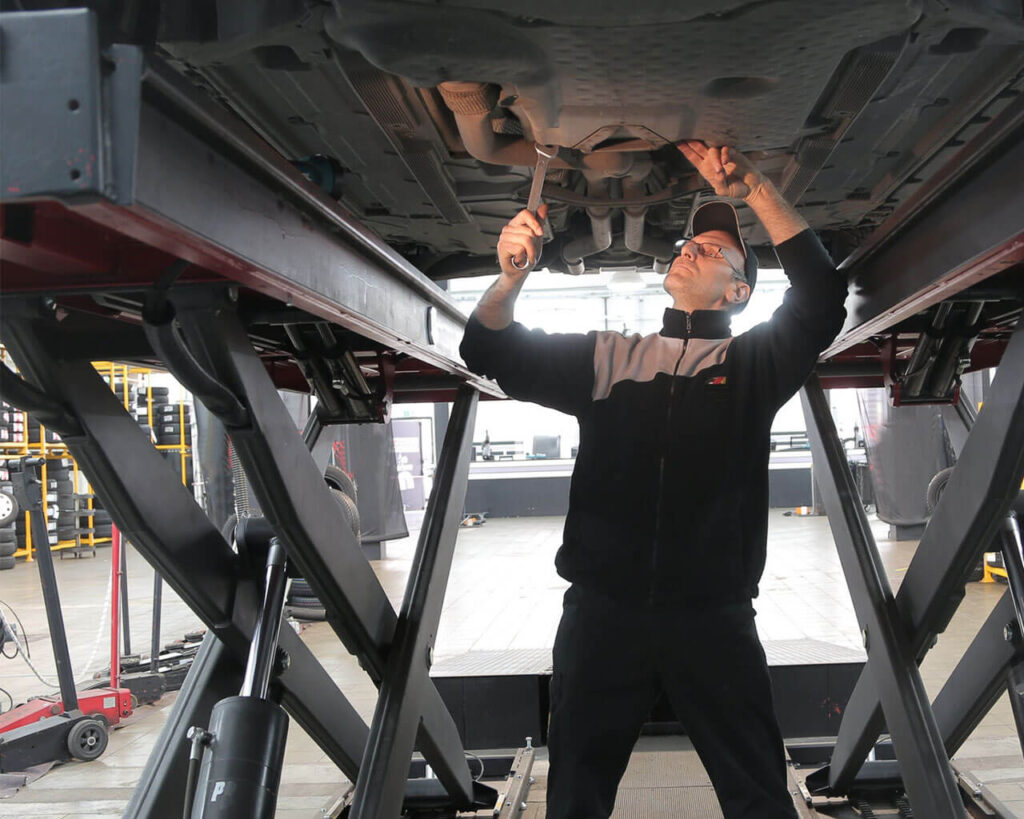Car troubles can happen to anyone, but knowing how to identify and fix common issues can save you time, money, and stress. At Mike Golin Automotive, we understand the frustration of dealing with car problems, so we’ve compiled a list of five common car issues and tips on how to address them.
1. Dead Battery
A dead battery is one of the most frequent reasons for car trouble. If your car struggles to start or doesn’t start at all, a weak or dead battery could be the culprit.
How to Fix It:
-
Jump Start: If your battery is dead, try jump-starting your car using jumper cables and another vehicle with a charged battery.
-
Battery Replacement: If jump-starting doesn’t work or your battery is old, it may be time to replace it. A typical battery lasts about 3 to 5 years.
-
Check for Drainage: Make sure your car isn’t draining the battery unnecessarily (like leaving lights on) or causing issues with the charging system.
2. Flat Tire
A flat tire can occur without warning and is something every driver will likely face at some point. A puncture from nails or debris, or simply underinflated tires, can leave you stranded.
How to Fix It:
-
Spare Tire: Know how to change a tire. Make sure you have a functional spare tire, a jack, and a lug wrench in your car at all times.
-
Repair Kits: Some flat tires can be temporarily patched with a tire repair kit until you can get to a shop.
-
Tire Rotation & Maintenance: Regularly check tire pressure and rotate your tires every 6,000 to 8,000 miles to avoid premature wear.
3. Engine Overheating
Overheating is a serious issue that can damage your engine if not addressed promptly. Common causes include low coolant levels, a malfunctioning thermostat, or a broken radiator fan.
How to Fix It:
-
Check Coolant: If your engine is overheating, check the coolant level. If it’s low, add coolant and keep an eye on the temperature gauge.
-
Allow It to Cool: Never attempt to open the radiator cap immediately after the engine has overheated, as hot steam may escape. Wait for it to cool down before opening it.
-
Visit a Mechanic: If the problem persists, visit a professional to inspect and fix the thermostat, radiator, or other cooling system components.
4. Faulty Brakes
Brakes are critical for your safety, so if you notice a squeaking, grinding noise, or your car takes longer to stop, it’s essential to get them checked immediately.
How to Fix It:
-
Brake Pads: If you hear a high-pitched squeal, it could be the wear indicator on your brake pads. Replacing the brake pads might be necessary.
-
Brake Fluid: Low brake fluid levels can cause poor braking performance. Check your brake fluid and top it off if needed.
-
Professional Inspection: Have your brake system inspected regularly to ensure everything, including the calipers and rotors, is functioning properly.
5. Strange Noises Under the Hood
Unusual sounds coming from your engine or under the car, such as knocking, squealing, or rattling, can indicate various problems like loose parts, worn belts, or engine issues.
How to Fix It:
-
Belt and Pulley Inspection: Squealing noises often come from a worn-out serpentine belt or pulley. Replacing these parts can stop the noise.
-
Oil and Lubrication: If the noise sounds like grinding, it could be due to insufficient lubrication. Make sure you’re getting regular oil changes and that the oil level is correct.
-
Professional Diagnosis: If the noise persists, have a mechanic perform a thorough inspection to identify the cause and prevent further damage.
Conclusion
While some car issues are minor and can be fixed with simple repairs, others require professional attention. Regular vehicle maintenance, like oil changes, tire rotations, and brake inspections, can help prevent many common car problems. If you’re facing any of these issues or need help with a repair, don’t hesitate to reach out to Mike Golin Automotive. Our experienced team is here to help get you back on the road safely and efficiently.
